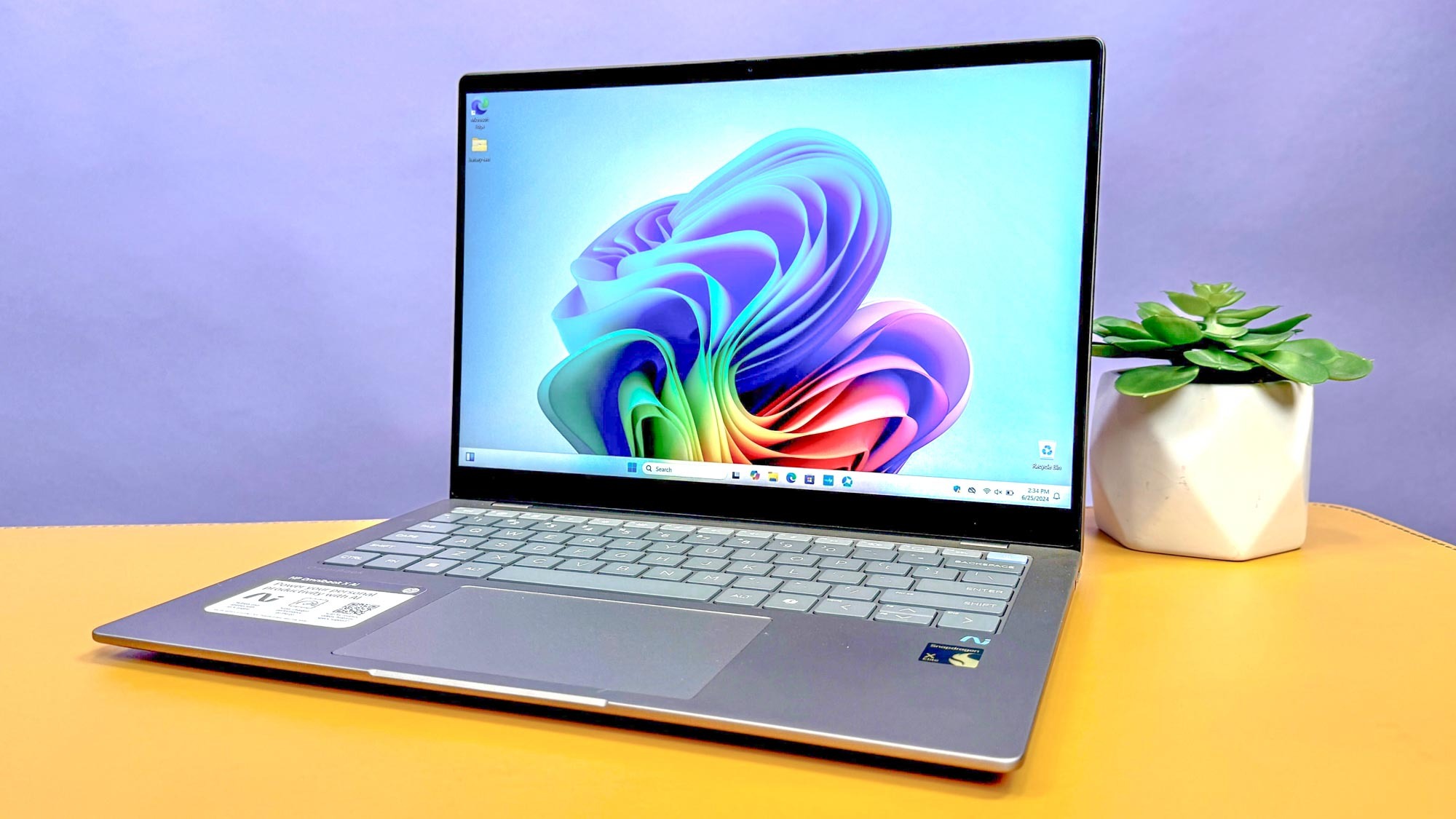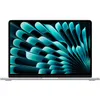Snapdragon X chips finally make Windows laptops competitive with MacBooks — here’s why
Qualcomm delivers the goods with its new Snapdragon X chips

The first Windows laptops powered by Qualcomm's new Snapdragon X chips have hit the market, and they're setting new records for battery life in our testing lab.
This is a big deal because it marks a turning point in the conversation about how well the best Windows laptops match up against the best MacBooks. For years now, Apple's laptops have had the clear edge over Windows machines when it comes to battery life, reliably lasting 12+ hours on a full charge when Windows laptops often struggle to hit 10.
No longer. The new Snapdragon X Elite and Snapdragon X Plus processors appear to be delivering on Qualcomm's promises, because every Snapdragon laptop we've tested to date handily lasts 12+ hours in our battery tests.
Heck, the new HP OmniBook X with Snapdragon X Elite crushed the MacBook Air M3 in battery life, lasting well over an hour longer. And while it still can't beat the MacBook Pro M3, the Snapdragon chip inside gets it closer than any other Windows laptop we've ever tested.
This is a big win not just for Qualcomm but also Microsoft, as the Windows vendor can finally start pointing to third-party battery tests as evidence that Windows 11 laptops are just as capable as MacBooks. And they can't start too soon, given that I just saw a TV ad for MacBooks yesterday promoting their "all-day battery life" as a key selling point.
And that's certainly true, especially if you spring for a big MacBook Pro and use it for basic web browsing and email all day. But if you look over the condensed chart of our battery test results below you can see that the new Windows laptops powered by Snapdragon are lasting as long or longer as the MacBook Air M3, which is currently our top recommendation for the best laptop for most people.
| Header Cell - Column 0 | Time (hours:minutes) |
|---|---|
| MacBook Pro 14-inch M3 | 17:16 |
| HP Omnibook X | 16:22 |
| HP EliteBook Ultra | 16:22 |
| Microsoft Surface Laptop 7 (13-inches) | 15:44 |
| MacBook Air 13-inch M3 | 15:10 |
| MacBook Air 15-inch M3 | 15:03 |
| Microsoft Surface Laptop 7 (15-inches) | 15:01 |
| Lenovo Yoga Slim 7x | 14:20 |
| MSI Prestige 16 AI Evo | 13:22 |
| Lenovo IdeaPad Pro 5i | 12:12 |
| Microsoft Surface Pro 11 | 12:10 |
| Samsung Galaxy Book4 Pro 360 | 12:04 |
| Lenovo Slim 7 14 Gen 9 | 10:04 |
| Acer Swift Go 14 | 8:25 |
* bold = Snapdragon X Elite
italics = Intel Meteor Lake
I've also taken the liberty of including battery test results from some recently tested Windows laptops that are powered by one of the new Intel Meteor Lake chips, so you can see how they stack up. You may remember that when Intel rolled out the Meteor Lake chips (along with the name change to Intel Core/Core Ultra) we heard a lot of promises about how their new "chiplet" design would enable them to deliver better battery life by using the on-chip NPU (Neural Processing Unit) to do some tasks more efficiently than prior generations could.
Apple's laptops are still among the best you can buy, but now there's real competition coming from Qualcomm.
It may well be true, as we have seen some Meteor Lake laptops reliably delivering 10-12 hours of runtime in our battery life tests. That may not sound like much, but it is significant when you recall it wasn't so long ago that even a top-tier premium Windows laptop from Dell struggled to last 8 hours on a single charge.
However, as you can see from the chart above, Qualcomm's Snapdragon X CPUs blow Intel's latest round of laptop chips out of the water when it comes to battery life. Snapdragon laptops are also pretty competitive in terms of raw performance, but since they're Arm CPUs instead of the traditional x86 architecture you do have to run many Windows apps through an emulation layer that adds additional work and slows down performance relative to what we see on Windows laptops running on x86 chips.
| Header Cell - Column 0 | Vivobook S 15 (Snapdragon X Elite) | MacBook Air (M3) |
|---|---|---|
| Geekbench 6 single-core | 2411 | 3082 |
| Geekbench 6 multi-core | 14438 | 12087 |
| Handbrake (time to transcode a 4K movie to 1080p) | 4:28 | 7:19 |
But as new laptops like the Asus Vivobook S 15 and HP OmniBook X have proven, the hype wasn't all smoke and mirrors — Qualcomm has delivered the goods with Snapdragon X.
Every new Snapdragon X laptop we've tested so far has been on par with the latest MacBooks, and I doubt slotting the new Apple M4 chip into the next round of MacBooks is going to radically change that. Apple's laptops are still among the best you can buy, but now there's real competition coming from Qualcomm.
So if you've been on the fence about buying a new PC and all-day battery life was a big concern, rest easy — buying a Windows laptop no longer means you have to carry a charger with you when you leave the house, as long as you buy a well-reviewed one with one of Qualcomm's Snapdragon X chips inside.
But now you have to wonder: Can Intel and AMD produce laptop chips efficient enough to compete with what Qualcomm has brought to the table?
Time will tell!
More from Tom's Guide
- Microsoft turns Copilot key into barely functional fidget button
- I've tried the new AI features of Copilot+ PCs and I'm impressed
- Copilot+ PCs debuts 4 new tools
Sign up to get the BEST of Tom's Guide direct to your inbox.
Get instant access to breaking news, the hottest reviews, great deals and helpful tips.

Alex Wawro is a lifelong tech and games enthusiast with more than a decade of experience covering both for outlets like Game Developer, Black Hat, and PC World magazine. A lifelong PC builder, he currently serves as a senior editor at Tom's Guide covering all things computing, from laptops and desktops to keyboards and mice.
-
Alder lake A easy way to improve battery life is to make 100wh capacity normal that's one of the things Apple does to make MacBook pros get better battery life and it's not hard to doReply










